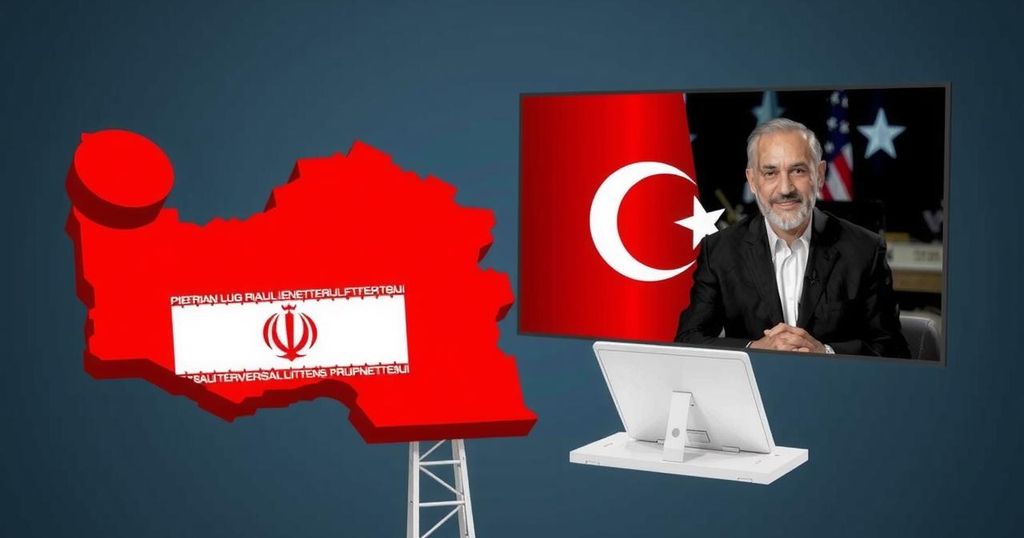Turkey Launches TRT Farsi to Expand Media Reach and Influence in Persian Language

Turkey’s state broadcaster TRT launched its Persian-language service, TRT Farsi, on December 18, aiming to challenge Western media dominance and enhance regional communication amid strained relations with Iran. The service targets over 130 million Persian speakers globally, positioning itself as an alternative voice in the media landscape dominated by channels such as BBC Persian and Iran International.
On December 18, Turkey’s state television channel, TRT, officially launched its Persian-language service, TRT Farsi, marking a pivotal step in the broadcaster’s international expansion. This new service is designed to outreach the sizable Persian-speaking audience globally while positioning Turkey strategically amid its complex relationship with Iran. In a media landscape already featuring channels such as Iran International and BBC Persian, TRT Farsi aims to present an alternative voice, particularly in the context of Turkey’s recent political maneuvers in the region.
The launch ceremony in Ankara was attended by notable officials, including Fahrettin Altun, Turkey’s Presidential Communications Directorate head, who emphasized the importance of Persian content as a cultural bridge, stating, “Without doubt, publishing content in Persian is a valuable service to humanity.” He noted that the enduring connections between Iran and Turkey are deeply rooted, drawing cultural references to the works of Rumi, which highlight their shared heritage despite current geopolitical tensions.
Mehmet Zahid Sobaci, the Director General of TRT, articulated the channel’s mission to counterbalance the prevalent Western media narratives, asserting, “For years, international media was dominated by a one-sided, Western-centric view. Turkey, under President Erdogan’s leadership, has challenged this monopoly.” In addressing regional issues, he drew comparisons between conflicts in Syria and Gaza, voicing concerns about oppression in the region.
This initiative occurs during a sensitive period marked by instability in Syria and strained Turkey-Iran relations. Sobaci’s earlier remarks aimed at unsettling Iran provoked criticism; however, he later adopted a unifying tone, asserting, “Through the Persian language and attention to shared cultural bonds, we seek to strengthen connections between nations. TRT Persian will play an important role in developing communications between Turks and Persian speakers as a credible platform.”
Turkish Foreign Minister Hakan Fidan further complicated the context with statements about Iran needing to “learn lessons” from Syria’s political dynamics, evoking sharp rebukes from Iranian media. TRT aims to leverage its existing extensive digital presence, reporting 11 billion views across its platforms, while launching this twelfth language service targeting over 130 million Persian speakers globally.
Overall, TRT Farsi is not merely a media outlet; it symbolizes Turkey’s cultural diplomacy efforts while navigating the multifaceted and often delicate relations with Iran and its influence in the region.
The launch of TRT Farsi comes amid increasing geopolitical tensions between Turkey and Iran, reflected in their historical disputes and competitive narratives in major international issues. Turkey has been actively expanding its media presence, recognizing the profound influence that information dissemination can wield on public perception and foreign relations. TRT’s expansion into Persian-language broadcasting is seen as a strategic initiative to enhance cultural and communicative ties with Persian speakers while simultaneously contesting Western-centric media portrayals that dominate global narratives.
In conclusion, the inauguration of TRT Farsi represents Turkey’s strategic bid to engage with Persian-speaking audiences and assert its media influence in a region fraught with political complexities. The service reflects an effort to build bridges while challenging existing media narratives, aiming for a credible platform that resonates with cultural ties and shared histories. Turkey’s political landscape, influenced by evolving relations with Iran and the broader Middle East, underscores the significance of this initiative in the context of international dialogue and cultural exchange.
Original Source: www.intellinews.com








